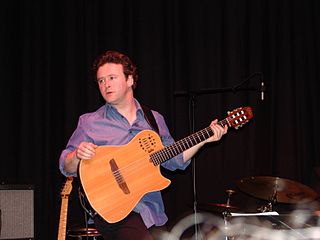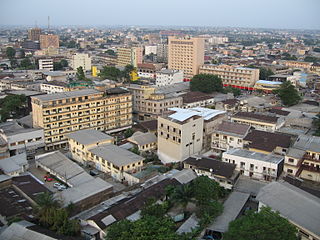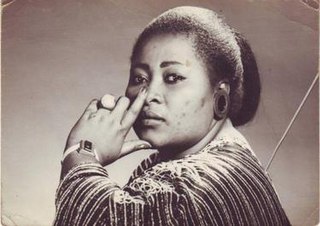Career
After three years Eko Roosevelt's band, Valdo formed Muntu Band, later renamed Mulema ("the heart"), and began recording and performing. In 2000, he performed in ten Cameroon cities. The same year, sound engineer Gilbert Moodio played a recording of a Valdo concert to a French producer; after an audition, Valdo was encouraged to move to France. He lived in Belleville, associated with young musicians, and played in jam sessions and concerts in the bars of Rue Oberkampf and Place Chatelet, either solo or with his band. He also played with Manu Dibango, Alpha Blondy, Ali Farka Touré, Lokua Kanza, Cheick Tidianne Seck, Tony Allen, Rido Bayonne, Etienne Mbappe, Stephane & Lionel Belmondo, and Richard Bona.
Muntu released his first album Gods and Devils – Moiye Na Muititi in 2005. He toured Africa, Europe and Asia, playing festivals and concert halls including the Queen Elizabeth Hall (London), New Morning (Paris), Womad (Carceres, Charlton Park and Singapore), the Théâtre de la Petite Reine (Tbilisi), The Sage (Newcastle), Festival Plein Sud & Festival Africolor (France), and Fespam (Republic of the Congo). [1]
In 2008, In January 2008, a new adventure beckons for the prince of SawaBlues, as he changes country yet again. This time he chooses London, attracted by the city’s dynamic cultural scene, perfect for cultivating fresh ideas and new material. This change heralds the beginning of a brand new
project for Muntu, a second major turning point in his career and a chance to take a fresh new look at his originality and that of a whole new generation of young Africans.
In London, Muntu soon started working with live music producers Serious Ltd. Performances followed at some of the UKs largest festivals (Womad, London Jazz Festival, Africa Express, Musicport, Belfast International Festival, Africa Oye, to name a few) and venues (Royal Opera House, Barbican,
The Sage Gateshead, Bridgewater Hall, Birmingham Symphony Hall, to name a few) playing alongside a huge variety of musicians including Richard Bona, Chucho Valdez, Naturally 7, Raul Midon, Staff Benda Bilili, Lionel Loueke, Ben L’oncle Soul, Nneka, Lucinda Williams, Manu Dibango, Denis
Rollings and Alasdair Roberts.
In 2011 Warner Jazz released his second album, The One The Many. During the release period he toured extensively across the UK including supporting Lady Smith Black Mambazo on their 30-date UK tour and embarking on my own tour supported by Arts Council’s Black Routes programme.
In 2012 he was commissioned to produce a live performance bringing together musicians from across Central and West Africa to be presented during Festival 2012’s BT River of Music for the Olympic games. The concert was a huge success and saw musicians from 12 different countries performing
for the very first time in the Uk. The likes of Annie-Flore Batchielilis, Mounira Mitchala, Lulendo, Acimo, Corry Denguemo and Amen Viana all proudly came together to perform alongside the Maria Fidelis Choir in a one-off extravaganza that also resulted in the release of thesingle ‘5 circles of Humanity’.
In 2013 he had the privilege and the honour to close the London African Festival with his 5-piece band. In November of the same year he supported Manu Dibango at the Barbican in London to celebrate his 50 years musical career, before heading to Cameroon as the headline act of Quartier Sud Festival.
From 2013 to 2015 I worked on various projects including studio sessions as instrumentalist and producer for different artists like Bumi Thomas, Sherry Davis, writing for a musical as well as performing on stages all over the Uk and countries in the world.
In 2016 he was invited by 2seas Session and the Heir to the Bahrain Kingdom, Prince Abdellah to perform in the Kingdom Compound and in the studio once owned by Michael Jackson near the capital city of Manama.
In 2017 he toured six cities across Europe with Google for Enterprise during the Pitch-Drive fund raising campaign.
From 2018 he started working on the production of a new Album entitled Sawablues as well as starting the writing a book about the so called Bantu People; a book that took him almost 10 years of research.
In 2019 he founded Cultural Laboratoire, a weekly gathering of artists from different fields of activities including dance, painting, poetry and music, at Katakata in Brixton, a well-known, vibrant and one of the most ethnic diverse area of London in UK.
In 2022, he went on road again, performing at nearly 60 concerts including a week of concerts and workshops at Dakar Music Expo in Senegal and supporting act for Ladysmith Black Mambazo on their 2022 UK tour.















